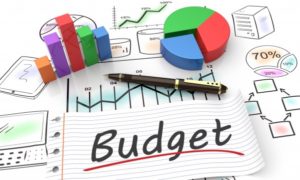4 Steps to Follow before Applying for a Personal Loan
 Financial institutions provide credit to individuals to help them meet fund requirements, such as medical emergency, wedding, or a dream holiday. These loans are offered based on their credit history. The Credit Information Bureau (India) Limited (CIBIL) collects information from financial institutions to maintain credit scores for individuals across the country.
Financial institutions provide credit to individuals to help them meet fund requirements, such as medical emergency, wedding, or a dream holiday. These loans are offered based on their credit history. The Credit Information Bureau (India) Limited (CIBIL) collects information from financial institutions to maintain credit scores for individuals across the country.
Availing of personal finance loans allows individuals to overcome any liquidity crises. However, before applying for the loan, it will be beneficial to know the procedure and the pros and cons of such credit facilities.
Understanding the loan application process
Most financial institutions in the country offer personal loans to individuals. However, the procedure may vary from one lender to another. Understanding the process and the rules and regulations of the institutions before making the choice is recommended. It is advisable to review the loan application form to comprehend the terms and conditions in order to make an accurate decision.
Here are four steps to follow before applying for a loan.
1. Check the interest rates
Each lender levies different rate of interest. Some institutions may offer fixed rates while others may offer reducing balance rate of interest. In the latter calculation, the interest is charged on monthly reducing balance determined after decreasing the Equated Monthly Installment (EMI). However, with a fixed rate, the interest remains the same during the entire loan tenure.
2. Determine the Equated Monthly Installment (EMI)
Lenders determine the loan amount based on the income of the applicants and their credit score. It is important to choose an EMI that may be repaid without facing financial constraints. It is advisable that all the EMIs do not exceed 50% of the borrower’s monthly income to prevent a liquidity crisis.
3. Understand the documentation
Some of the commonly required documents include an identity, age, and residence proof along with the duly filled application form. Furthermore, applicants may need to provide details of their income and bank accounts to the lenders.
4. Confirm the loan eligibility
Applicants must use a personal loan online calculator to determine their eligibility before applying for a loan. Any individual aged between 21 years and 58 years may apply for such loans. The minimum net monthly income must be at least INR 25,000 with two years of work experience. An online calculator will help borrowers to know the approximate amount they may procure as a loan.
Having understood the loan application procedure, here are three benefits of applying for such loans.
1. Collateral not required
Unlike other credit facilities like home or auto loans, personal loans are unsecured. This means borrowers do not need to provide any personal asset as collateral against the loan. In case an individual fails to make timely repayments, the risk of losing the asset is eliminated with these loans.
2. Quick approval
These loans require applicants to submit some basic documents for receiving approval. Furthermore, these are unsecured credit facilities that make it easier for lenders to sanction the loans. Since the loan approval is primarily based on the credit history of the applicant, an easy personal loan is disbursed within a short period of time.
3. Affordability
Contrary to belief, these loans are available at competitive interest rates. Furthermore, the processing fees and other charges are nominal, which makes it affordable for individuals to avail of these credit facilities.
Personal finance may be used for any legal purpose. This provides flexibility to the borrowers without limiting the use of these funds. Several financial institutions offer these loans and provide loan-related information on their websites.Individuals must conduct extensive research and review these details in order to land the best deal.













